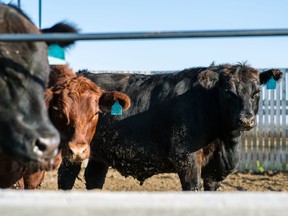TORONTO – Will Taylor Swift bring chaos or do we all need to calm down?
It’s a question many Torontonians are asking this week as the city braces for the arrival of Swifties, the massive fan base of one of the world’s biggest pop stars.
Hundreds of thousands are expected to descend on the downtown core for the singer’s six concerts which kick off Thursday at the Rogers Centre and run until Nov. 23.
And while their arrival will be a boon to tourism dollars — the city estimates more than $282 million in economic impact — some worry it could worsen Toronto’s gridlock by clogging streets that already come to a standstill during rush hour.
Swift’s shows are set to collide with sports events at the nearby Scotiabank Arena, including a Raptors game on Friday and a Leafs game on Saturday.
Some residents and local businesses have already adjusted their plans to avoid the area and its planned road closures.
Aahil Dayani says he and some friends intended to throw a birthday bash for one of their pals until they realized it would overlap with the concerts.
“Something as simple as getting together and having dinner is now thrown out the window,” he said.
Dayani says the group rescheduled the gathering for after Swift leaves town. In the meantime, he plans to hunker down at his Toronto residence.
“Her coming into town has kind of changed up my social life,” he added.
“We’re pretty much just not doing anything.”
Max Sinclair, chief executive and founder of A.I. technology firm Ecomtent, suggested his employees avoid the company’s downtown offices on concert days, saying he doesn’t see the point in forcing people to endure potential traffic jams.
“It’s going to be less productive for us, and it’s going to be just a pain for everyone, so it’s easier to avoid it,” Sinclair said.
“We’re a hybrid company, so we can be flexible. It just makes sense.”
Swift’s concerts are the latest pop culture moment to draw attention to Toronto’s notoriously disastrous daily commute.
In June, One Direction singer Niall Horan uploaded a social media video of himself walking through traffic to reach the venue for his concert.
“Traffic’s too bad in Toronto, so we’re walking to the venue,” he wrote in the post.
Toronto Transit Commission spokesperson Stuart Green says the public agency has been working for more than a year on plans to ease the pressure of so many Swifties in one confined area.
“We are preparing for something that would be akin to maybe the Beatles coming in the ‘60s,” he said.
Dozens of buses and streetcars have been added to transit routes around the stadium, and the TTC has consulted the city on potential emergency scenarios.
Green will be part of a command centre operated by the City of Toronto and staffed by Toronto police leaders, emergency services and others who have handled massive gatherings including the Raptors’ NBA championship parade in 2019.
“There may be some who will say we’re over-preparing, and that’s fair,” Green said.
“But we know based on what’s happened in other places, better to be over-prepared than under-prepared.”
Metrolinx, the agency for Ontario’s GO Transit system, has also added extra trips and extended hours in some regions to accommodate fans looking to travel home.
A day before Swift’s first performance, the city began clearing out tents belonging to homeless people near the venue. The city said two people were offered space in a shelter.
“As the area around Rogers Centre is expected to receive a high volume of foot traffic in the coming days, this area has been prioritized for outreach work to ensure the safety of individuals in encampments, other residents, businesses and visitors — as is standard for large-scale events,” city spokesperson Russell Baker said in a statement.
Homeless advocate Diana Chan McNally questioned whether money and optics were behind the measure.
“People (in the area) are already in close proximity to concerts, sports games, and other events that generate massive amounts of traffic — that’s nothing new,” she said in a statement.
“If people were offered and willingly accepted a shelter space, free of coercion, I support that fully — that’s how it should happen.”
This report by The Canadian Press was first published Nov. 13, 2024.




























